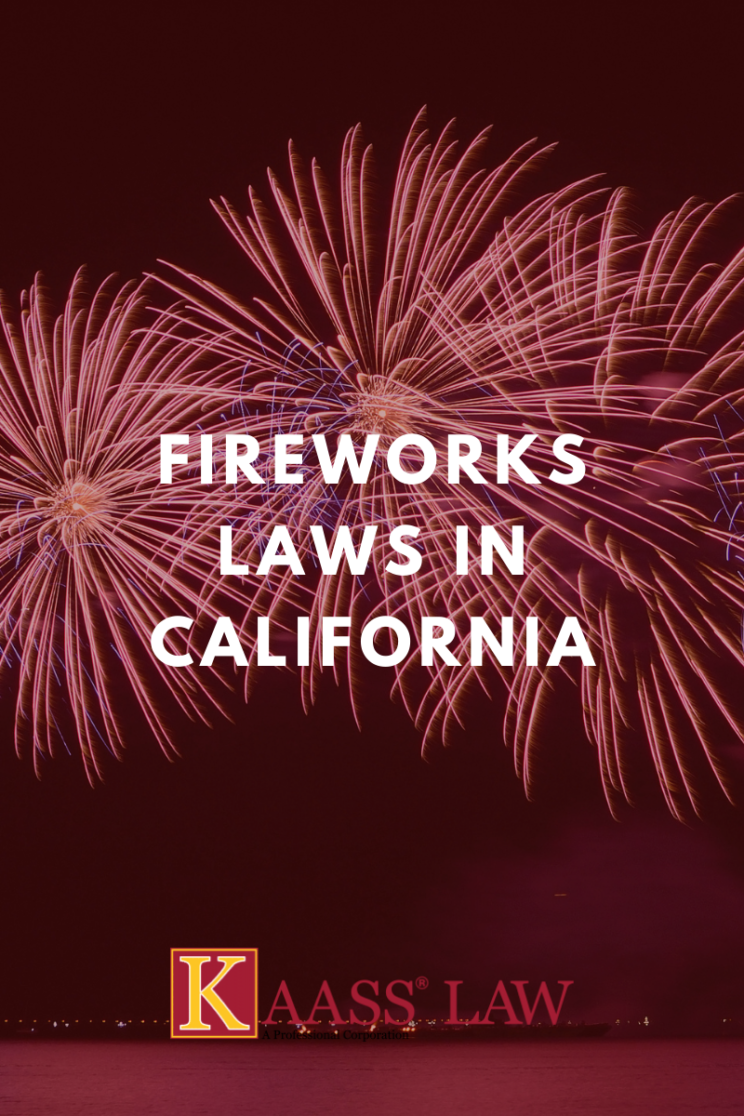Are Fireworks Legal in California?
In California, firework laws divide fireworks into two categories and an exempt category. The categories are “dangerous fireworks” and “safe and sane” fireworks. A “dangerous” firework includes items like rockets and sparklers longer than ten inches or wider than one-quarter inch in diameter. A “safe and sane” firework includes ones like fountains, spinners, noise makers, etc…
Health and Safety Code 12500-12728
Under Health and Safety Code 12505, dangerous fireworks must be used by someone with a license to do so. Dangerous fireworks contain: arsenic sulfide, chlorates, magnesium, phosphorus, zirconium and many other chemicals. Exempt fireworks also need a special license to be used in California. Exempt fireworks are fireworks for industrial use, commercial use, agricultural use or for religious purposes.
Under Health and Safety Code 12529 these are fireworks that comply with California law and local fire department restrictions. These types of fireworks must be sold at a designated place of business by a person with a retail sales license between the dates of June 28th Noon until Noon of July 6th each year. The only items that can be sold year round are “party poppers” and “snap caps.”
How to Tell if a Firework Falls Under “Safe and Sane”
Any and all “safe and sane” fireworks in the state of California must display a “State of California, State Fire Marshall Registered Fireworks” seal. If the seal is not present, the fireworks are not legal to possess or use in the state of California.
What Are the Punishments for Illegal Fireworks in California?
In California, being in possession of an illegal firework is violating Health and Safety Code 12677. This can apply to California “safe and sane” fireworks as well if they violate the local fire codes. In Burbank and Glendale, “safe and sane” fireworks are not permitted.
Most offenses result in a misdemeanor punishable by:
- Up to one year in county jail, and/or
- Fined up to $1000.
The sale and distribution of “dangerous” fireworks violates California Health and Safety Code 12767 which in return can be charged with other offenses. The punishment for this offense is dependent on the amount of fireworks in possession of the defendant upon arrest.
25-100lbs of Fireworks
- Fines between $1000 and $5000.
- Up to one year sentence in county jail.
101-5,000lbs of Fireworks
- Can be charged as misdemeanor or felony.
- Dependent on facts of the case, prosecution and criminal history of the defendant.
- Misdemeanor
- Results in fines between $5,000 and $10,000.
- Up to a one year sentence in county jail.
- Felony
- Results in fines between $5,000 and $10,000.
- Jail sentence between 16 months and three years in jail.
Over 5,000lbs of Fireworks
- Can also result in a misdemeanor or felony charge.
- Misdemeanor
- Jail sentence up to one year
- A fine between $10,000 and $50,000.
- Felony
- Sentence between 16 months and three years in jail.
- A fine between $10,000 and $50,000.
What Are Possible Defenses Against a Fireworks Violation?
An attorney may be able to help you fight against a California Firework charge. Known defenses include:
- Being able to prove the defendant was not the person in possession or controlled the fireworks.
- Illegally obtained through an unfair search and seizure by law enforcement.
- Defendant has a permit to possess and use fireworks in California.
- The defendant was under reasonable understanding that they were involved in a legal transaction.

